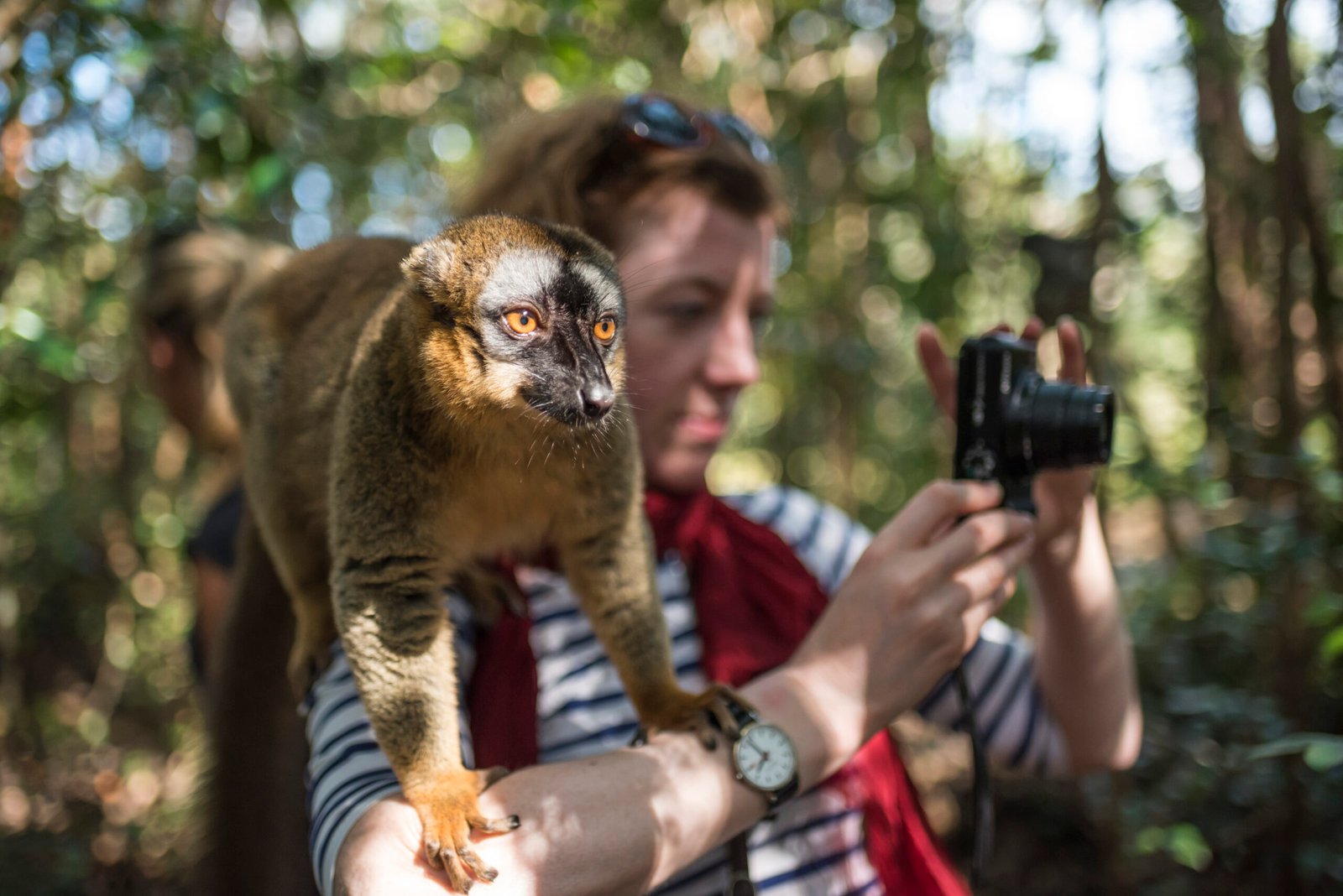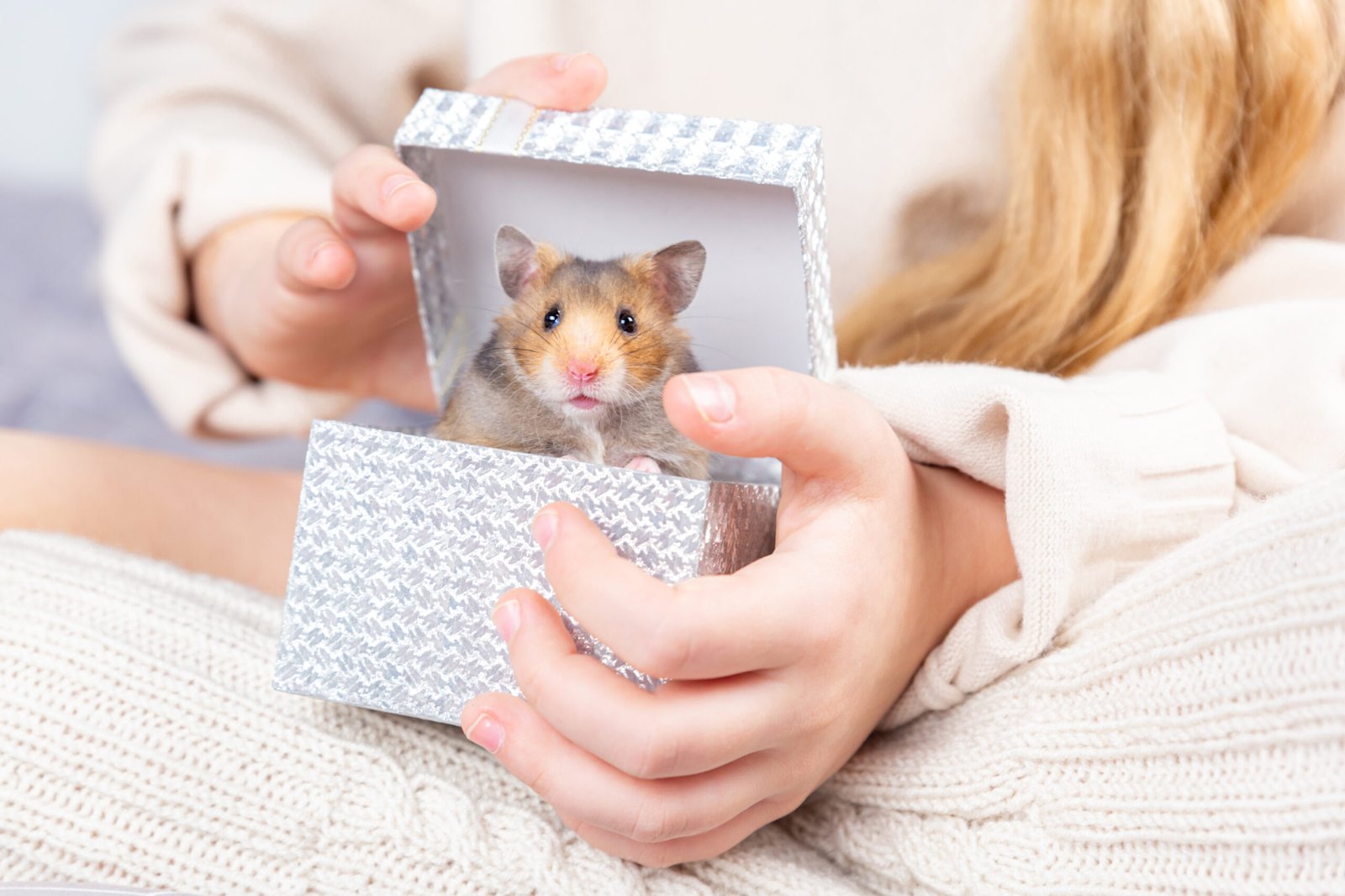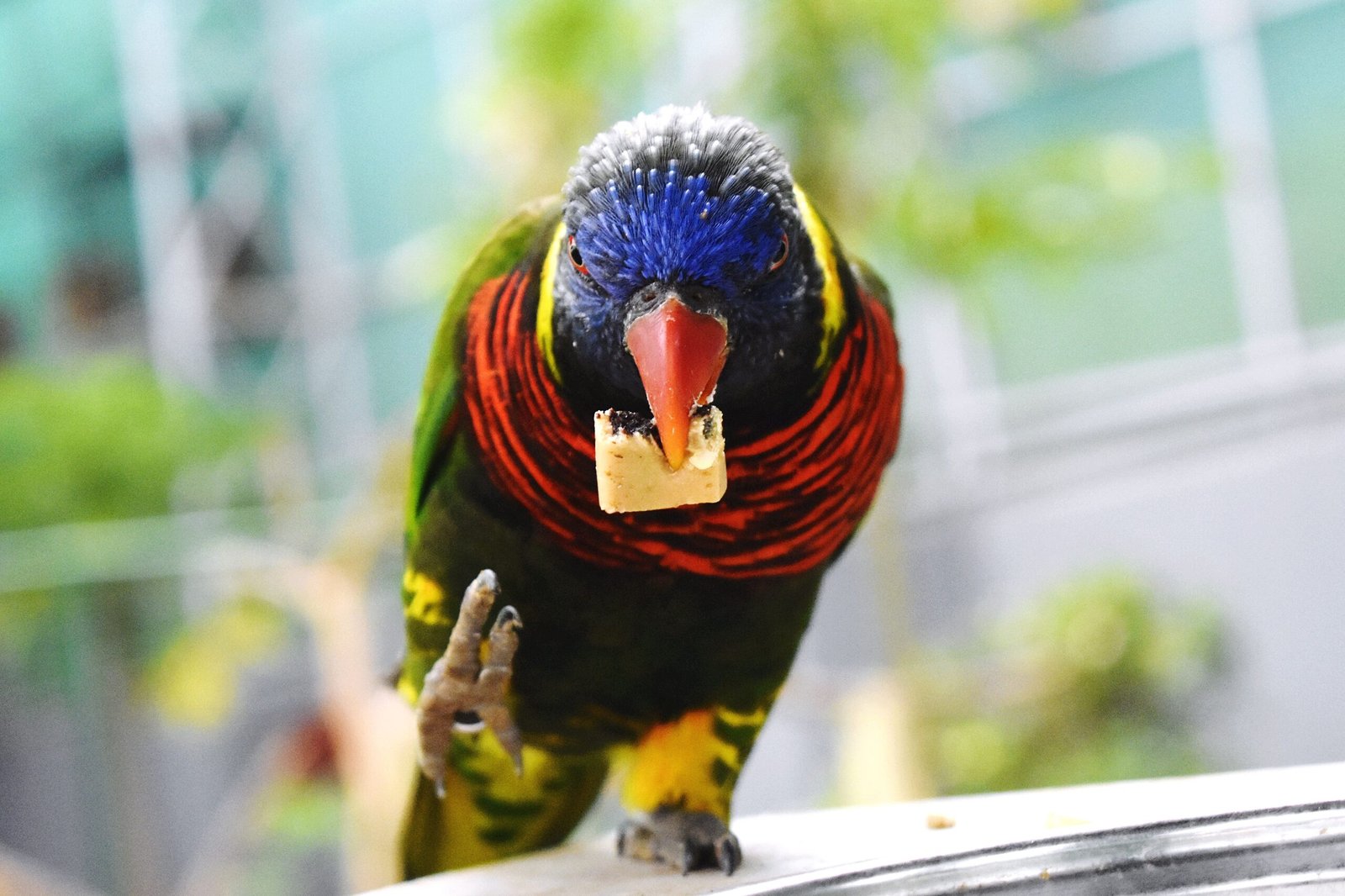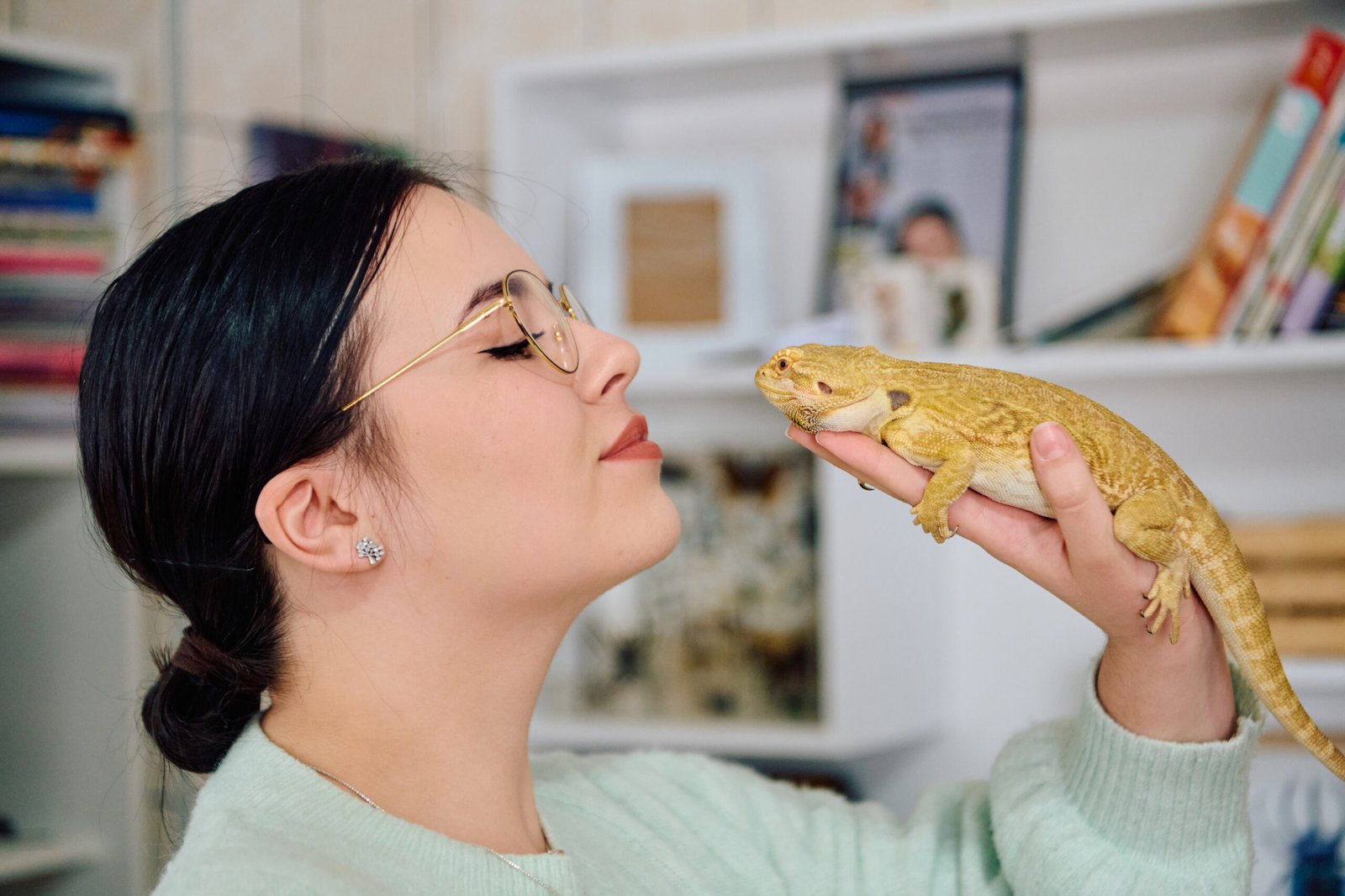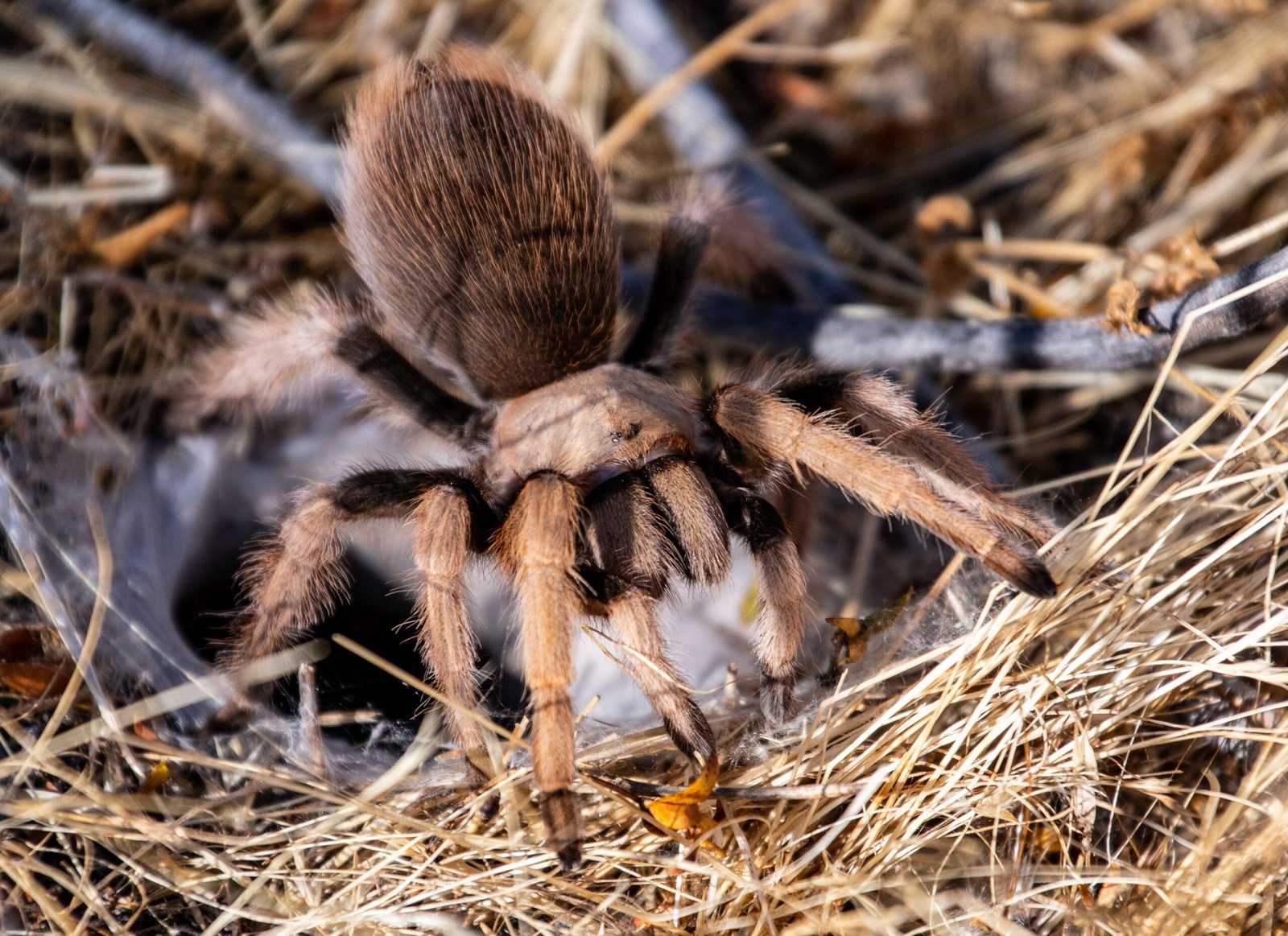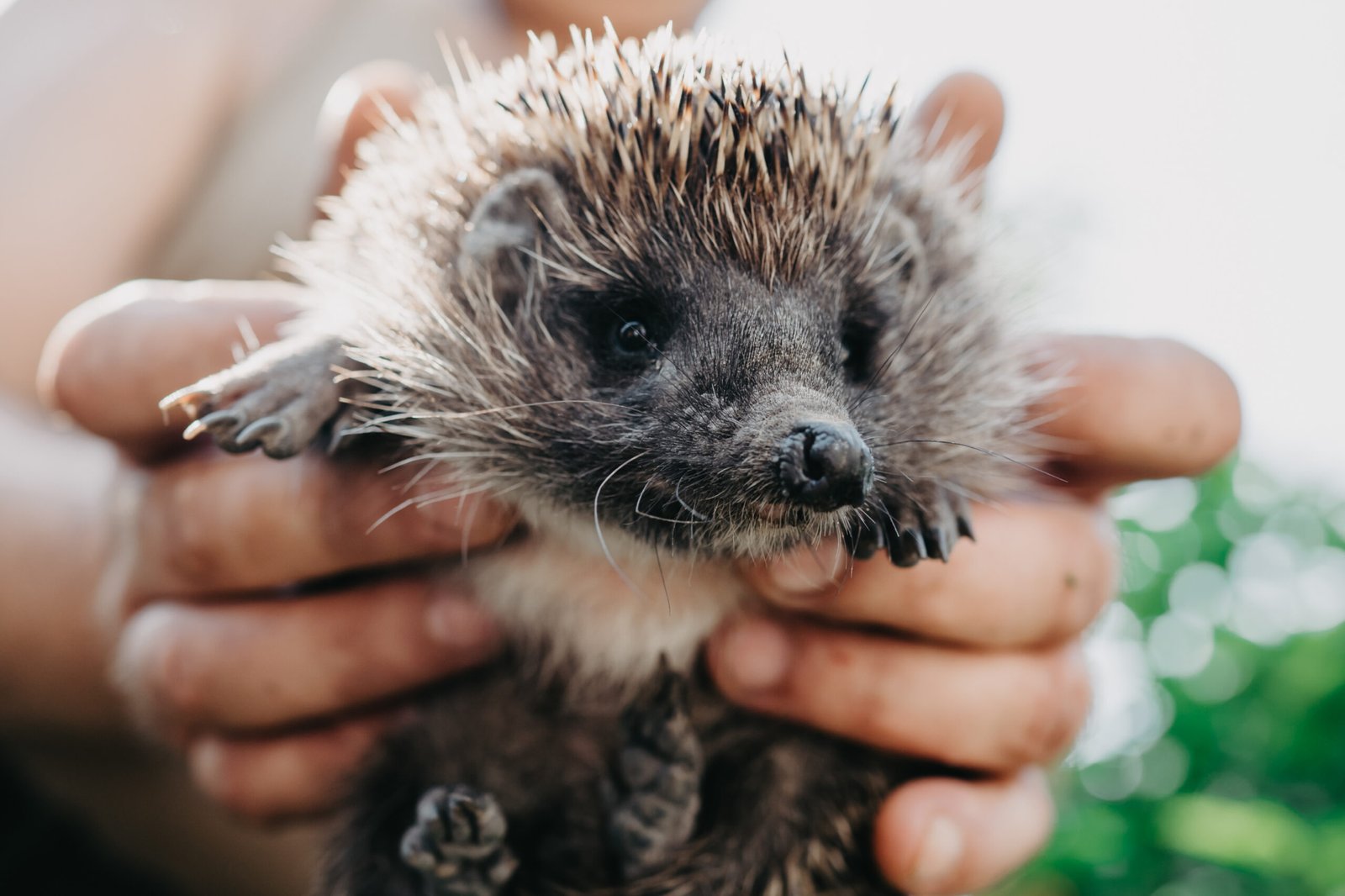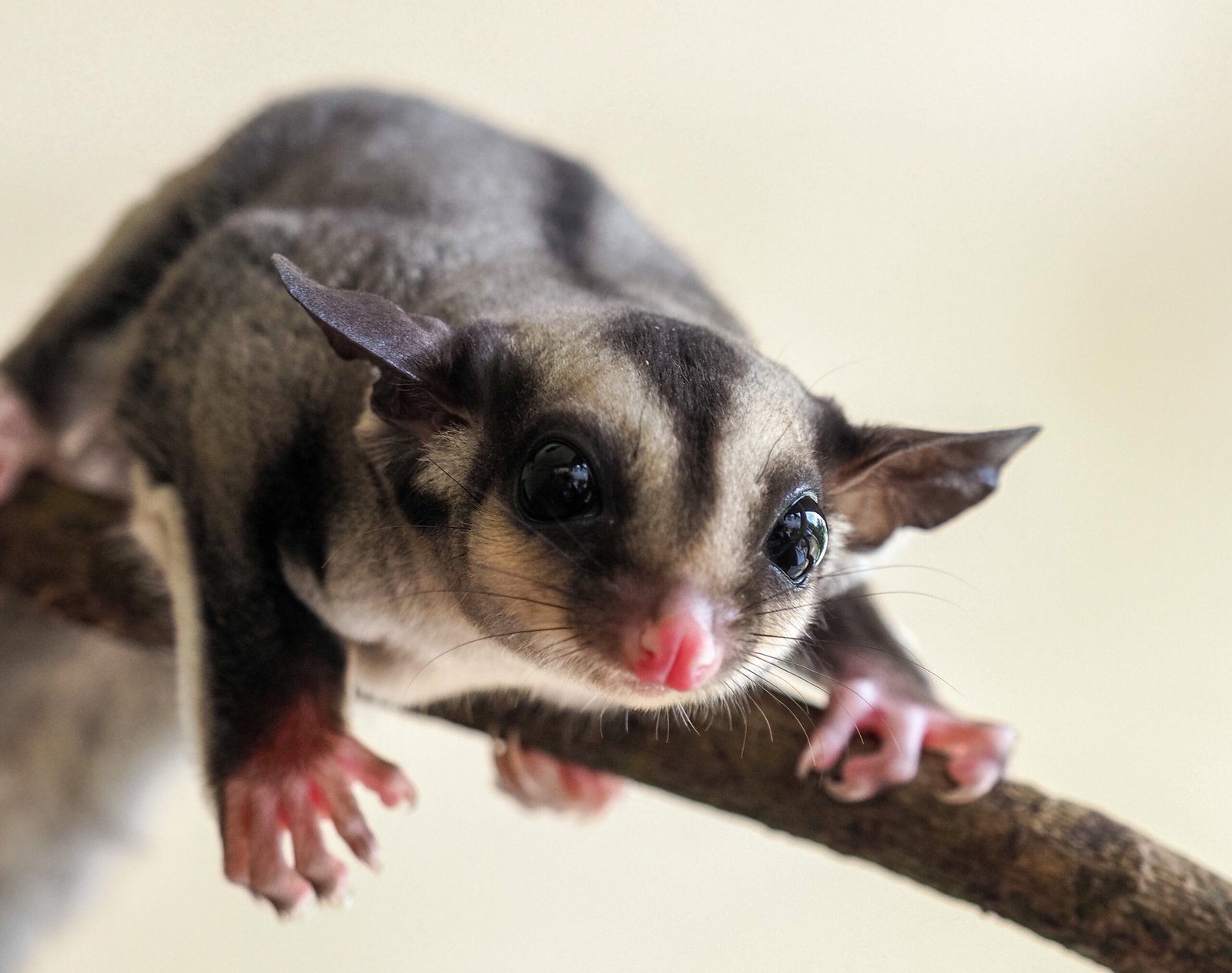If you’re a proud owner of an exotic pet, understanding how to feed them properly is paramount to ensuring their health and happiness. From reptiles to exotic birds, each species has its own unique dietary needs that must be met for optimal wellness. In this comprehensive guide, we’ll dive into the world of Diet and Nutrition Tips for Uncommon Pets, providing you with the knowledge to keep your exotic companions thriving. Let’s uncover the secrets to a well-balanced diet tailored for your beloved uncommon pets and explore the various aspects of feeding exotic animals effectively.
Feeding Exotic Pets: Tips and Tricks for Optimal Nutrition
Feeding exotic pets can be a fascinating yet challenging responsibility. Their diverse dietary needs often stem from their native environments and natural feeding behaviors. To ensure you’re meeting these requirements, it’s essential to understand your pet’s specific needs by thoroughly researching their natural habitat and feeding habits. By doing so, you’ll be well-equipped to replicate their natural diet as closely as possible.
When offering a balanced diet to exotic pets, it’s crucial to incorporate a variety of fresh and nutritious ingredients that mimic their natural food sources. This approach not only aids in their physical health but also helps prevent boredom and stimulate their natural foraging behavior. Consulting with a veterinarian who has experience in exotic pet care can provide invaluable insights into the dietary supplements and adjustments needed to ensure your pet’s optimal well-being. Regular monitoring of your pet’s health and behavior is key; adjustments in their diet should be made promptly based on these observations.
– Understanding the specific dietary needs of your exotic pet by researching their natural habitat and feeding habits.
– Providing a balanced diet that mimics their natural food sources, incorporating a variety of fresh, nutritious ingredients.
– Consulting with a veterinarian experienced in exotic pet care to ensure dietary requirements and nutritional supplements are met.
– Monitoring your pet’s health and behavior regularly to adjust their diet as needed for optimal well-being.
– Avoiding common feeding pitfalls by staying informed about toxic foods and proper portion sizes for your exotic pet species.
Why Exotic Pet Nutrition is Important
Proper nutrition is the cornerstone of health and longevity for any pet, more so for exotic species whose needs often diverge significantly from those of ordinary pets. With the right diet, exotic pets can receive the nutrients not typically found in standard pet foods, allowing them to thrive in a domestic environment. Tailoring a balanced diet specific to your uncommon pet helps in preventing malnutrition and any associated health risks.
A diet that’s well-suited to an exotic pet’s needs supports their natural behaviors, promoting a healthy and active lifestyle. Understanding these unique dietary requirements can lead to improved overall well-being and quality of life for your pet. Consulting a veterinarian who specializes in exotic species ensures you make informed choices, aiding in the selection of the best diet plan for your exotic companion.
– Proper nutrition is essential for the health and longevity of exotic pets, ensuring they receive the necessary nutrients not typically found in standard pet foods.
– A balanced diet tailored to an uncommon pet’s specific needs helps prevent malnutrition and related health issues.
– Understanding unique dietary requirements can improve overall well-being and quality of life.
– Providing the right nutrition supports the pet’s natural behaviors and physical activities.
– Consulting with a veterinarian or specialist can guide pet owners in choosing the best diet plan for their exotic companions.
Top Tips for Optimal Nutrition
Adapting your pet’s meal plans to their species-specific nutritional needs is a critical step in providing excellent care. By considering their natural habitats and eating behaviors, you can craft an ideal diet that covers all essential nutrients. When offering a balanced diet to your exotic pets, it’s vital to include a variety of foods, avoiding over-reliance on commercial pet options.
Incorporating fresh fruits, vegetables, and high-quality proteins into their meals according to their size and activity level can prevent issues like obesity or malnutrition. It is essential to stay informed about toxic foods and potential allergens particular to each species to protect their health. Regular check-ups with a veterinarian or pet care specialist are pivotal in monitoring your pet’s nutrition and making needed dietary adjustments.
– Tailor meal plans to match the specific nutritional needs of each uncommon pet species, considering their natural habitats and eating behaviors.
– Provide a balanced diet that includes a variety of foods to ensure all essential nutrients are covered, avoiding over-reliance on commercial pet foods.
– Incorporate fresh fruits, vegetables, and high-quality proteins, adjusting portions according to the pet’s size and activity level.
– Stay informed about toxic foods and potential allergens specific to each species.
– Regular consultations with a veterinarian or a specialist in exotic pet care to monitor your pet’s nutritional health.
Exotic Pet Nutritional Needs Overview
| 🐾 Pet Type | 🍽️ Primary Diet Components | 💊 Essential Nutrients | 🕒 Feeding Frequency | ⚠️ Special Considerations |
|---|---|---|---|---|
| 🦜 Birds | Seeds, fruits, vegetables, occasional insects | Vitamin A (carrots, greens), Calcium, Water | Daily | Avoid avocado, chocolate, and high-salt foods; consult an avian vet for tailored advice. |
| 🦎 Reptiles | Insects, leafy greens, small prey, specialized pellets | Calcium and Vitamin D3 (critical for bone health) | Varies by species (e.g., snakes every 1-2 weeks, lizards more frequently) | Ensure UVB exposure; monitor for metabolic bone disease. |
| 🐰 Small Mammals | High-fiber hay, leafy greens, small amounts of fruits | Fiber (for digestion), Vitamin C (essential for guinea pigs), Protein | Daily | High-sugar foods and grains can lead to obesity; avoid raisins and grapes for some species. |
| 🦗 Insectivores | Variety of insects (mealworms, crickets) | Protein (high insect-based protein content), Calcium (dust insects with calcium powder) | Daily or every few days | Avoid wild-caught insects due to pesticide risk; maintain moisture for hydration needs. |
| 🐢 Herbivorous Reptiles | Leafy greens, vegetables, occasional fruits | Calcium to Phosphorus Ratio (1.5:1 is ideal), Vitamin D | Daily | Avoid iceberg lettuce (low nutritional value); ensure hydration through misting or soaking. |
| 🦔 Omnivorous Mammals | Mix of fruits, vegetables, protein sources | Balanced Protein and Fiber intake, Calcium, Vitamin B Complex (for energy) | Daily or every other day | Monitor for allergies; avoid processed human foods and high-sugar snacks. |
| 🐠 Aquatic Animals | Specialized aquatic feed, live food (varies) | Protein, Vitamins C and A (important for immune health), Trace Minerals (zinc, copper for skin health) | Varies based on species | Maintain clean water and stable pH levels; avoid overfeeding to prevent water quality issues. |
| 🦘 Exotic Mammals | Species-specific (some may need grains, protein) | Vitamin E (anti-inflammatory), Fiber (digestion), Minerals (potassium, magnesium) | Species-dependent (consult species-specific vet) | Avoid high-fat diets for certain species; ensure access to freshwater and vitamin supplements as advised. |
Feeding Exotic Pets: A Guide to Proper Nutrition
Understanding your exotic pet’s specific dietary needs is a fundamental step in ensuring their balanced nutrition and overall well-being. Providing a varied diet that mimics their natural food sources is crucial for keeping them healthy and content. To prevent overfeeding or underfeeding, researching appropriate portion sizes and feeding schedules is highly recommended.
Supplementing their diet with necessary vitamins and minerals can prevent nutritional deficiencies, contributing to their long-term health. For personalized dietary advice and recommendations, consulting with a veterinarian specializing in exotic animals is advisable.
– Understand the specific dietary needs of your exotic pet to ensure balanced nutrition and overall well-being.
– Provide a varied diet that mimics their natural food sources to keep them healthy and thriving.
– Research appropriate portion sizes and feeding schedules to avoid overfeeding or underfeeding your pet.
– Supplement their diet with necessary vitamins and minerals to prevent nutritional deficiencies.
– Consult with a veterinarian specializing in exotic animals for personalized dietary advice.
Birds
Birds are fascinating creatures with diverse dietary requirements. Ensuring they receive a balanced diet filled with seeds, fruits, vegetables, and occasionally insects is essential for their health. One cannot overlook the importance of fresh, clean water daily to maintain hydration and digestive health. Additionally, birds benefit from supplemental vitamin and mineral-rich foods to prevent deficiencies.
Specific foods, such as avocados, chocolate, caffeine, and high-salt items, must be avoided as they are toxic to birds. Tailoring a diet plan with the guidance of an avian veterinarian can provide the specific care your bird needs for thriving health.
– Birds require a balanced diet that includes seeds, fruits, vegetables, and occasionally insects to ensure optimal health.
– Providing fresh, clean water daily is crucial for maintaining a bird’s hydration and digestive health.
– Supplementing a bird’s diet with vitamin and mineral-rich foods can help prevent nutritional deficiencies.
– It’s important to avoid feeding birds avocados, chocolate, caffeine, and high-salt foods, as these can be toxic.
– Consulting with an avian veterinarian can help tailor a diet plan specific to your bird’s species.
Reptiles
Reptiles present a unique challenge as their dietary needs can vary significantly depending on the species. Some reptiles are strict carnivores, while others may be herbivores or omnivores, requiring a tailored diet to meet these needs. Ensuring the proper balance of calcium and vitamin D3 is crucial for preventing metabolic bone disease, a common health issue among reptiles.
Access to clean water is as vital for reptiles as it is for any animal, with unique needs possibly requiring special arrangements like misting or drip systems. Regular feeding schedules alongside careful portion monitoring are imperative in preventing obesity and nutritional deficiencies among reptiles.
– Reptiles require a balanced diet tailored to their species for optimal health and longevity.
– Many reptiles are strict carnivores or herbivores, while some are omnivorous, necessitating a varied diet.
– Calcium and vitamin D3 are critical for preventing metabolic bone disease in reptiles.
– Access to clean water is essential, with some species needing misting or drip systems for hydration.
– Regular feeding schedules and portion monitoring help in avoiding obesity and nutritional deficiencies.
Other Exotic Pets
When it comes to other exotic pets, understanding each species’ unique dietary needs plays a pivotal role in their health and happiness. Proper research intertwined with expert consultation is the key to crafting a balanced diet for these animals. A diverse diet fulfills nutritional requirements, helping to prevent deficiencies and health issues.
Regularly monitoring and adjusting your pet’s diet based on their growth and activity level can have a significant impact on their well-being. In some cases, incorporating supplements or specially formulated foods may be necessary to address dietary needs that natural foods cannot cover.
– Emphasize the importance of understanding the unique dietary needs of each exotic pet species for optimal health.
– Proper research and consultation with exotic pet nutrition experts can provide insights into balanced diets.
– A varied diet fulfills nutritional requirements and prevents deficiencies.
– Regular monitoring and diet adjustments based on growth, activity, and health indicators are crucial.
– Incorporating supplements or specially formulated foods can meet specific dietary needs of exotic pets.
The Perfect Diet for Exotic Pets
Crafting the perfect diet for exotic pets requires an understanding of species-specific dietary needs, which can be gleaned from researching their natural habitat and eating habits. Offering a balanced diet that includes the right mix of proteins, carbohydrates, fats, vitamins, and minerals is crucial in preventing obesity or malnutrition.
Proper portion sizes and regular weight monitoring ensure that your exotic pet maintains optimal health. Mimicking natural feeding behaviors through a variety of foods not only provides nutritional benefits but also stimulates mental engagement. Consulting a veterinarian who specializes in exotic animals allows you to tailor a diet plan and address any health concerns specific to your pet.
– Understand species-specific dietary needs by researching each exotic pet’s natural habitat and eating habits.
– Provide a balanced diet that includes the right mix of proteins, carbohydrates, fats, vitamins, and minerals.
– Ensure proper portion sizes to prevent obesity or malnutrition and monitor the pet’s weight regularly.
– Offer a variety of foods to mimic natural feeding behaviors, stimulate mental engagement, and prevent boredom.
– Consult with a veterinarian specializing in exotic animals to tailor a diet plan and address specific health concerns.
What are some essential nutrients that exotic pets need in their diet?
When caring for exotic pets, it’s crucial to provide them with a well-balanced diet rich in essential nutrients to ensure their overall health and longevity. Different species have unique dietary requirements, and understanding these needs can prevent a variety of health issues. Below is a detailed exploration of the essential nutrients that exotic pets typically need:
1. Proteins
Proteins are the building blocks of life, essential for growth, tissue repair, and overall well-being. For carnivorous exotic pets like snakes and certain reptiles, proteins primarily come from whole prey such as mice or insects. On the other hand, herbivorous animals, including some tortoises and iguanas, obtain proteins from leafy greens and legumes.
2. Fats
Fats are a concentrated energy source and play a crucial role in maintaining healthy skin and coat, as well as supporting cellular functions. For instance, certain avian species require seeds and nuts, which are higher in fats, as part of their diet. However, it’s important to balance fat intake to prevent obesity, which is common in captive exotic pets.
3. Carbohydrates
Carbohydrates provide energy and are a significant component of the diets of herbivorous exotic pets. Animals like guinea pigs and hamsters benefit from high-fiber carbohydrates found in hay, fruits, and vegetables, which aid in digestion and maintain gut health.
4. Vitamins and Minerals
Exotic pets need a variety of vitamins and minerals for immune function, bone health, and overall wellness:
– Vitamin A: Essential for vision and immune function, this vitamin is particularly important for reptiles. Foods like carrots and dark leafy greens are rich in Vitamin A.
– Vitamin D3: Critical for calcium absorption, especially in reptiles that rely on UVB lighting to synthesize this vitamin. Deficiencies can lead to metabolic bone disease.
– Calcium: Necessary for bone structure and strength. A calcium-to-phosphorus balance is crucial; therefore, dusting food with calcium supplements can be beneficial for reptiles and birds.
– Phosphorus: While essential, excessive phosphorus can interfere with calcium absorption, stressing the importance of that balance.
5. Water
Despite not being a nutrient per se, water is vital for all living creatures, including exotic pets, and supports every physiological process. Ensuring constant access to clean, fresh water is crucial for health and hydration.
6. Fiber
Particularly essential for herbivorous exotic pets, fiber maintains digestive health and regular bowel movements. High-fiber diets are crucial for animals like rabbits and guinea pigs and can prevent issues like gastrointestinal stasis.
7. Trace Elements
Micronutrients such as iodine, iron, selenium, and zinc are important for various bodily functions. For example, iodine is vital for thyroid function, while zinc supports the immune system.
How can I ensure my exotic pet is getting a balanced diet?
Owning an exotic pet can be a rewarding and exciting experience, but it also comes with unique challenges, particularly when it comes to their dietary needs. Providing a balanced diet for your exotic pet is crucial to ensuring their health, longevity, and overall happiness. Here’s a comprehensive guide to help you meet their dietary requirements:
Research Species-Specific Needs
The first step in ensuring your exotic pet receives a balanced diet is to research the specific dietary needs of your pet’s species. Exotic pets encompass a wide range of animals from reptiles and amphibians to birds and small mammals, each with distinct dietary needs. For example, a bearded dragon’s diet consists of insects and leafy greens, while a macaw requires a variety of fruits, nuts, and seeds. Invest time in learning about their natural diets in the wild and how you can mimic these in a captive environment.
Consult with a Veterinarian
Consulting with a veterinarian, especially one who specializes in exotic animals, is vital. These professionals can provide tailored advice on the nutritional needs of your pet based on their species, age, and health condition. They can also advise on any supplements that might be necessary, such as calcium or vitamin D3 for reptiles.
Ensure Variety in Diet
Just like humans, most exotic pets benefit from a diverse diet that provides different nutrients. For instance, while insects might be a staple for reptiles, it’s important to offer different types of insects to ensure balanced nutrition. For bird species, a variety of grains, seeds, and fruits should be provided. This variety not only supports optimal health but also prevents dietary boredom, which can lead to behavioral issues.
Use High-Quality Supplements
Supplements can play a critical role in ensuring your exotic pet receives a balanced diet. However, these should not replace natural food sources but rather complement them. For example, calcium supplements are often necessary for reptiles and amphibians to prevent metabolic bone disease, a common issue due to calcium deficiency. Always verify with your vet the appropriate type and dosage of supplements for your pet.
Stay Informed About Toxic Foods
Certain foods harmless to humans or other pets may be toxic to exotic animals. For instance, foods like chocolate, caffeine, and avocado are dangerous to many exotic birds. It is important to educate yourself on what foods are safe and what should be strictly avoided. This knowledge can be crucial in safeguarding your pet against accidental poisoning.
Monitor Health and Weight
Regularly monitor your exotic pet’s health and weight to ensure they are receiving the right nutrition. Sudden weight changes or lethargy may indicate dietary imbalance or health issues. Keeping a log of their diet and any significant changes in behavior or physical appearance can be useful information for your vet.
Are there any specific foods that I should avoid feeding my exotic pet?
Owning an exotic pet comes with a unique set of responsibilities, especially when it comes to their diet and nutrition. Unlike more common pets, exotic animals often have specific dietary needs and can be more sensitive to certain foods. Below are some guidelines and considerations for ensuring the dietary health of your exotic companion.
Understanding Your Pet’s Natural Diet
Before introducing any food to your exotic pet, it’s crucial to understand their natural diet in the wild. Different species have evolved to thrive on specific types of food found in their natural habitats. Researching and mimicking this diet as closely as possible will significantly reduce the risk of health issues.
Dangerous Foods to Steer Clear Of
– Processed Human Food: Many exotic pets are not equipped to digest processed foods meant for human consumption. This includes sweets, salty snacks, and anything high in artificial additives. Feeding these can lead to obesity, diabetes, and other health complications.
– Caffeine and Chocolate: These treats are toxic to many animals. Exotic pets such as birds, reptiles, and small mammals are particularly vulnerable to the harmful effects of caffeine and theobromine found in chocolate.
– Avocado: Despite its superfood status among humans, avocado contains persin, a toxin that can be deadly to many birds and some other animals. Always check the specific risks avocado poses to your particular pet species.
– Dairy Products: Many exotic pets are lactose intolerant, which means they cannot digest lactose, the sugar found in milk. Feeding dairy can result in gastrointestinal distress, including bloating, diarrhea, and vomiting.
– Garlic and Onions: These common kitchen ingredients contain compounds that can damage red blood cells and lead to anemia in a variety of exotic species, including birds and reptiles.
Special Considerations by Species
– Birds: Many fruits are safe, but always remove seeds and pits which can be toxic. Avoid feeding them avocados, chocolate, or alcohol due to their extreme sensitivity to these substances.
– Reptiles: Be mindful of calcium to phosphorus ratios in their food. Incorrect ratios can cause metabolic bone disease. Also, steer clear of feeding them ice berg lettuce, which offers no nutritional value, or any insects from your backyard due to pesticide exposure.
– Small Mammals (e.g., Ferrets, Sugar Gliders): Diets high in sugar or carbohydrates can be detrimental. Stick to a protein-rich diet specifically designed for their needs, and avoid raisins or grapes, which can cause acute kidney failure.
Consultation and Regular Check-ups
A crucial part of caring for an exotic pet is consulting with a veterinarian who specializes in exotic animal care. They can provide guidance tailored to your pet’s specific dietary needs and help you create a balanced feeding plan. Regular health check-ups will also ensure that your pet maintains optimal health and can help catch any dietary mishaps early.
How often should I feed my exotic pet, and does it vary between species?
Owning an exotic pet can be an incredibly rewarding experience, offering a unique glimpse into the lives and behaviors of creatures that are quite different from our everyday domestic pets. However, one of the critical aspects of caring for these extraordinary animals is understanding their dietary needs, which can often be quite different—and more complex—than those of traditional pets. One of the most common questions new exotic pet owners have is: “How often should I feed my pet, and does it vary between species?”
Factors Influencing Feeding Frequency
The frequency with which you feed your exotic pet can depend on a variety of factors, including:
1. Species-Specific Metabolism: Some species have fast metabolisms and require frequent feeding, while others can go days or even weeks between meals. For instance, small reptiles like anoles might need daily feeding, while larger snakes such as boa constrictors can often thrive on a diet of one meal every two weeks.
2. Size and Age of the Animal: Younger animals or smaller species generally need to eat more frequently due to their rapid growth rates and high metabolism. For example, juvenile lizards may need smaller, more frequent meals compared to their adult counterparts.
3. Diet Type: Carnivores, herbivores, and omnivores all have different dietary needs. Herbivorous reptiles such as tortoises may require daily feeding of fresh greens, whereas carnivorous reptiles like corn snakes may eat every few days or weekly.
4. Environmental Factors: Temperature and humidity levels play a significant role in the digestion and eating habits of many exotic pets. Reptiles, being ectothermic, rely on external heat sources to help digest their food, which can influence how often they need to eat.
5. Activity Level and Health: More active animals might need more regular feeding to sustain their energy levels. Health issues can also alter feeding frequencies; a vet’s guidance can help adjust feeding routines during illness or recovery.
Species-Specific Feeding Guidelines
Understanding the specific needs of your exotic pet species is vital. Here are a few general pointers for different exotic pet groups:
– Reptiles: Non-venomous snakes such as pythons or kingsnakes may eat every 1-2 weeks, while smaller lizards require daily to bi-weekly feeding depending on their size and species. Geckos, for example, might eat every two to three days.
– Amphibians: Due to their varied size and metabolism, amphibians like dart frogs or axolotls typically require feeding every few days, although this can change with temperature and activity levels.
– Birds: Exotic birds like parrots and cockatoos should have access to food and water at all times, as they tend to have higher metabolic rates compared to reptiles and need a consistent diet of seeds, fruits, and specialized bird feed.
Where can I find reliable sources for purchasing specialized diets for exotic pets?
When it comes to ensuring the health and well-being of exotic pets, providing them with the appropriate nutrition tailored to their unique dietary needs is paramount. Finding reliable sources for purchasing specialized diets can often be a challenging task, given the diversity and specific requirements of various exotic animals. Here’s a guide to help you navigate this crucial aspect of exotic pet care.
1. Veterinary Clinics and Exotic Pet Specialists
The first and perhaps most authoritative source for specialized diets is veterinary clinics, particularly those with expertise in exotic animals. These professionals are well-versed in the nutritional needs of different species and can provide expert guidance on the most suitable diets. They often have access to or can recommend specialty pet food suppliers that are reputable and trusted within the veterinary community.
– Consultation Benefits: By consulting with a vet, you can ensure that the diet prescribed is aligned with your pet’s health needs, taking into account any existing medical conditions.
2. Online Pet Retailers Specialized in Exotic Animals
Several online retailers are dedicated to exotic pet supplies, offering a wide range of nutritional products that cater specifically to exotic species. Prominent online platforms such as Chewy or Petco sometimes feature sections for exotic pet care, though more specialized retailers like Exotic Nutrition are more likely to carry an expansive line of foods tailored for specific exotic species, including reptiles, birds, and small mammals.
– Customer Reviews and Ratings: Utilize customer reviews and ratings to gauge the effectiveness and authenticity of the products. This feedback can provide insights into how other exotic pet owners manage their pets’ dietary needs.
3. Local or Independent Pet Stores
Local pet stores, especially those that focus on niche markets or have staff knowledgeable about exotic animals, can be excellent resources. These stores often stock premium brands and may even offer custom diet formulations. Building a relationship with store staff can be beneficial; they can provide personalized recommendations based on your particular pet’s dietary requirements.
– Community and Support: Establishing a rapport with local pet store owners can also integrate you into a community of exotic pet enthusiasts who often share recommendations and advice.
4. Orchidariums and Zoos
While it might seem unconventional, orchidariums, zoos, and wildlife sanctuaries sometimes sell or recommend specific diets for visitors who own exotic pets. Engaging with institutions that house exotic animals can provide insights into high-quality, nutritious options. Staff and caretakers often have first-hand experience with the dietary needs of various species.
– Educational Programs: Many of these establishments offer educational programs and workshops on animal care, including nutrition, which can be an invaluable resource for pet owners.
5. Online Forums and Exotic Pet Communities
Engaging with online forums and communities dedicated to exotic pet care can provide a wealth of information. Websites such as Reptile Forums, Bird Board, and others offer platforms where exotic pet owners share their experiences.
Conclusion: Unlocking a Thriving Life for Your Exotic Pets
The pathway to ensuring your exotic pets live a thriving and happy life lies in understanding and catering to their unique dietary needs. By applying the right Diet and Nutrition Tips for Uncommon Pets, you can enhance their quality of life significantly. From frequent consultations with specialists to prolonged observation and adjusting as necessary, every step you take towards crafting an ideal diet plan is a step towards nurturing a healthy, vibrant relationship with your exotic companions. Remember, the right diet is not just about feeding—it’s about love, care, and the readiness to go above and beyond for your extraordinary friends.
